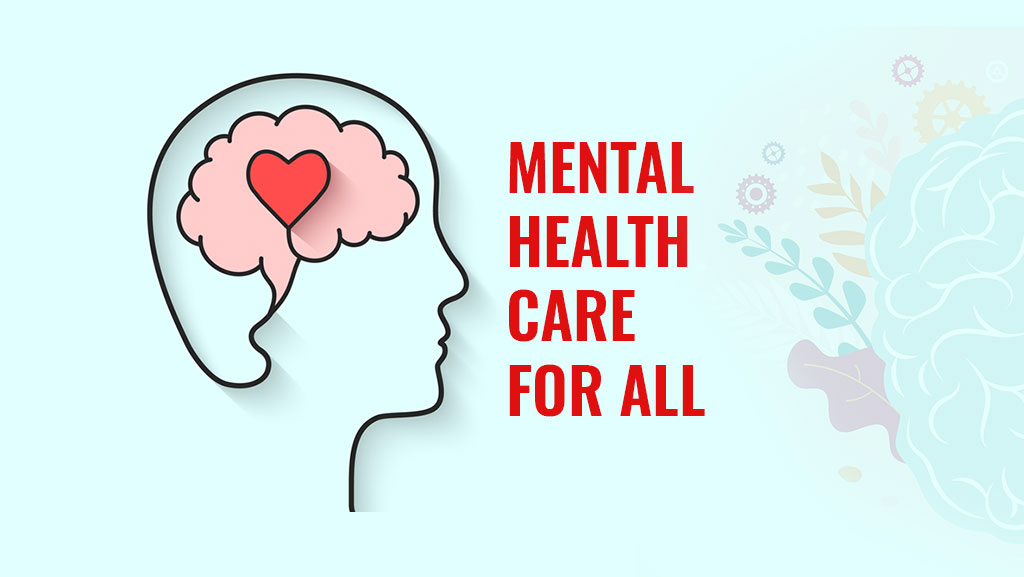Mind Matters: Transforming Mental Health Care for a Brighter Tomorrow
Mental health care has emerged as a critical frontier in the quest for overall well-being and societal progress. With increasing awareness and understanding of mental health issues, we find ourselves at a pivotal moment where transformation in care is not just desirable but essential. As we navigate the complexities of modern life, the importance of addressing mental health concerns has taken center stage, influencing everything from personal relationships to workplace productivity, and even public health policies.
The challenges surrounding mental health care are multifaceted, encompassing stigma, access to services, and the need for effective treatment options. However, this moment also presents an incredible opportunity for innovation and reform. By embracing a holistic approach that prioritizes empathy, accessibility, and evidence-based practices, we can pave the way for a brighter tomorrow where mental health is treated with the same urgency and importance as physical health. As we explore the various dimensions of mental health care, we aim to inspire a collective commitment to fostering a supportive environment for all individuals striving for mental wellness.
Understanding Mental Health
Mental health is a critical aspect of our overall well-being, encompassing the emotional, psychological, and social dimensions of life. It affects how we think, feel, and act, shaping our ability to handle stress, relate to others, and make decisions. Mental health is essential at every stage of life, from childhood and adolescence through adulthood and aging. Understanding mental health involves recognizing the complex interplay between biological, environmental, and social factors that contribute to our mental state.
The prevalence of mental health issues is a growing concern worldwide. Conditions such as anxiety, depression, and bipolar disorder are increasingly common, impacting millions of people regardless of age, gender, or background. In many cases, stigma surrounding mental health prevents individuals from seeking help, leading to exacerbated issues and a decline in overall quality of life. It is crucial to foster an environment where discussions about mental health are normalized, encouraging individuals to voice their struggles and seek the support they need.
Effective mental health care requires a holistic approach, combining medical treatment, therapy, and community support. This approach not only addresses immediate symptoms but also aims to promote long-term resilience and well-being. Early intervention, access to resources, and tailored treatment plans can significantly improve outcomes for those facing mental health challenges. By prioritizing mental health care and transforming how we view and treat mental health, society can work towards a brighter tomorrow for everyone.
Innovative Approaches to Care
The landscape of mental health care is undergoing a significant transformation through innovative approaches that emphasize accessibility, personalization, and community involvement. Telehealth services have emerged as a vital tool, allowing individuals to access therapy and counseling from the comfort of their homes. This modality has proven especially beneficial for those in remote areas or with mobility challenges. By reducing barriers to entry, telehealth enhances the likelihood of individuals seeking help and adhering to treatment plans.
In addition to telehealth, there is a growing focus on integrating technology into mental health care. Mobile applications and online platforms are increasingly being used to provide support resources, track moods, and offer cognitive behavioral techniques. These tools empower individuals to take an active role in managing their mental health, promoting self-awareness and engagement in their treatment. Furthermore, wearable technology is being explored as a means of monitoring physiological indicators of stress and anxiety, providing real-time feedback that can augment therapeutic practices.
Lastly, community-based programs are crucial in reshaping mental health care by fostering social support networks and reducing stigma. These initiatives often involve partnerships with local organizations, schools, and workplaces to create inclusive environments that prioritize mental wellness. By promoting awareness and understanding, community programs encourage open conversations about mental health, making it easier for individuals to seek help without fear of judgment. This holistic approach not only enhances individual care but also cultivates a supportive atmosphere that benefits society as a whole.

Building a Supportive Community
Creating a supportive community is essential for effective mental health care. Support networks enable individuals to share their experiences, provide mutual aid, and foster understanding. When people connect with others who are facing similar challenges, they often feel less isolated and more empowered to seek help. These communities can take many forms, from local support groups to online forums, where individuals can openly discuss their mental health journeys without fear of stigma.
In addition to peer support, families and friends play a crucial role in mental health care. Educating loved ones about mental health issues promotes empathy and awareness. When families are equipped with the knowledge to recognize signs of distress, they can more effectively support their members in need. Encouraging open communication within these circles not only strengthens relationships but also creates an environment where individuals feel safe to express their struggles.
Moreover, community organizations, schools, and workplaces can contribute to a culture of mental well-being. By implementing programs that prioritize mental health awareness and provide resources, these institutions can create an infrastructure that promotes wellness. Whether through workshops, mental health days, or accessible counseling services, fostering a community environment that values mental health is vital for enhancing overall societal resilience and wellbeing.